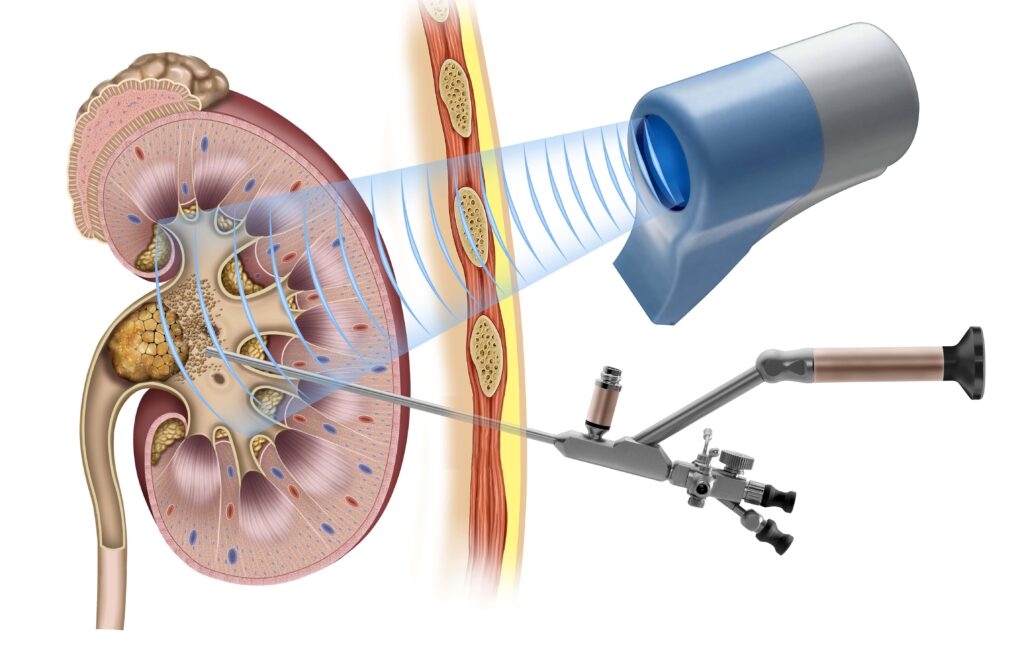
For many people, having kidney stones may be a painful and upsetting experience. In the past, kidney stone treatments were intrusive and frequently necessitated protracted hospital stays. However, the development of laser therapy has made it possible to treat kidney stones using hardly intrusive techniques that provide prompt pain and discomfort alleviation. In this post, we’ll talk about the advantages of kidney stone laser therapy and how it’s changed how this widespread ailment is treated.
- How can kidney stones occur?
In the kidneys or urinary system, hard, crystalline crystals known as kidney stones can develop. They develop when certain minerals and salts in urine build up and form tiny crystals, which have the potential to enlarge over time. When they pass through the urinary tract, kidney stones can be quite painful. If they get too big or become obstructive, they may need to be treated. Kidney stones can cause excruciating back or side discomfort, blood in the urine, and trouble urinating.
- Kidney Stones: Traditional Treatment Options
In the past, shock wave lithotripsy or open surgery were often used as treatments for kidney stones. These surgeries may be uncomfortable, necessitate protracted hospital stays, and patients would frequently need to miss time from work or school while recovering. Traditional medical procedures were often ineffective, leaving patients in need of additional operations or treatments.
- The Advantages of Laser Treatment for Kidney Stones
With the use of a laser, kidney stones can be broken up into smaller fragments that can be moved more easily via the urinary tract during a minimally invasive process known as laser therapy. Compared to conventional treatment options, laser therapy provides several benefits, such as:
- Rapid Recovery- Kidney stone laser therapy is a minimally invasive technique that does not call for an overnight hospital stay. After the operation, patients may often resume their regular activities within a few days.
2. Reduced Pain and Discomfort- Because laser treatment for kidney stones does not involve making major incisions or using shock waves, it is less unpleasant than conventional treatment procedures. After the surgery, patients could feel some discomfort, although this is typically treatable with painkillers.
Laser treatment for kidney stones is a minimally invasive process that doesn’t involve shock wave therapy or major incisions. As a result, there is a lower chance of problems and the treatment can be done without an inpatient stay. Make it more specific.
- Conclusion-
Laser treatment for kidney stones offers numerous advantages over traditional treatment methods. Patients can expect a quick recovery, reduced pain and discomfort, and high success rates with this minimally invasive procedure. Dr. Rajesh Dhake, a skilled and experienced urologist, can provide expert guidance and care throughout the entire treatment process, ensuring the best possible outcome for his patients.
With the use of advanced technology and the expertise of medical professionals like Dr. Dhake, kidney stone treatment has become significantly less invasive and more effective. No longer do patients have to endure lengthy hospital stays or suffer through painful and uncomfortable procedures. Instead, they can rely on the benefits of laser treatment and the care of experienced professionals like Dr. Dhake to help them overcome kidney stones and reclaim their quality of life.




